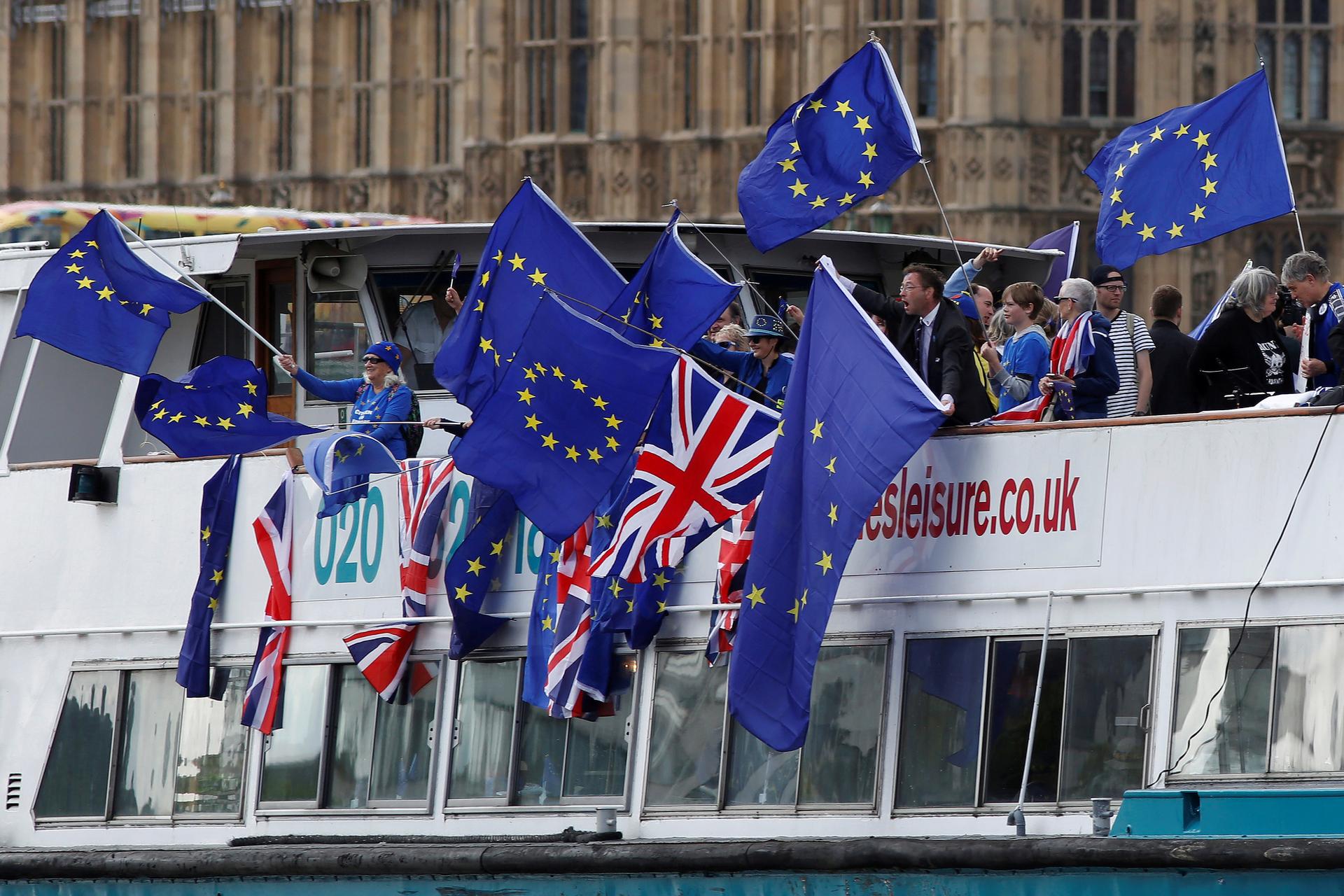Britain’s Labour Party calls for UK stay in the EU common market while Brexit proceeds
Anti-Brexit, pro-European Union Remain supporters wave flags as they travel up and down the River Thames, outside the Houses of Parliament, in London, August 19, 2017.
In a major policy shift, Britain's main opposition Labour party now backs staying in the European single market for a transitional period as the country leaves the EU.
"Labour would seek a transitional deal that maintains the same basic terms that we currently enjoy with the EU," Keir Starmer, the party's Brexit spokesman, wrote in The Observer newspaper on Sunday.
"That means we would seek to remain in a customs union with the EU and within the single market during this period. It means we would abide by the common rules of both," he said, meaning unimpeded immigration from the EU could continue.
The comments represent a major policy shift for Labour, which had previously been ambiguous on whether it would seek to retain single market and customs union membership, arguing only that it wanted a "jobs-first Brexit".
Labour are in a powerful position after making strong gains in June's general election, stripping Prime Minister Theresa May's Conservatives of their majority in parliament and forcing them to make a deal with Northern Ireland's Democratic Unionist Party to govern.
As Starmer unveiled Labour's new approach, a government source said the European Union should not "drag its feet" in negotiating Brexit.
"Both sides must be flexible and willing to compromise when it comes to solving areas where we disagree," the source said.
"As the EU itself has said, the clock is ticking so neither side should drag its feet," the source added, just days ahead of a fresh round of UK-EU divorce talks in Brussels.
In a statement, the government's Brexit ministry also called for the European Commission to be "more flexible," as British negotiators push for talks on future trade ties.
Last month, it announced that Britain would try to keep as many aspects of its EU membership in place as possible during a transition period of up to three years.
"Many things will look similar" and goods will continue to flow between Britain and the EU in "much the same way as they do now," even after the scheduled departure date of March 2019, Philip Hammond, Britain's finance minister, said at the time.
But he also said that EU nationals would have to register with the authorities starting from the expected departure date of March 2019 as the government comes up with a new immigration system.
But the EU has said it will not address Britain's proposal for a temporary customs union or start trade talks until "sufficient progress" has been made on a number of key issues.
These include the status of EU nationals in Britain, the bill for the divorce and the future of Northern Ireland's border with the Republic of Ireland.
Britain voted to leave the EU in a referendum last year and Prime Minister Theresa May issued a formal notification in March, starting a two-year negotiating timetable to exit.
The article you just read is free because dedicated readers and listeners like you chose to support our nonprofit newsroom. Our team works tirelessly to ensure you hear the latest in international, human-centered reporting every weekday. But our work would not be possible without you. We need your help.
Make a gift today to help us reach our $25,000 goal and keep The World going strong. Every gift will get us one step closer.
